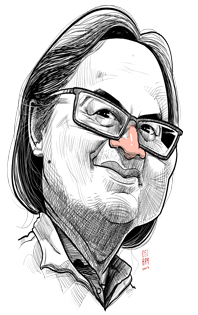"Resurgence of an Agrarian Movement in Post-Soeharto – Indonesia, Serikat Petani Pasundan (Sundanese Peasant Union), with Special Focus on Roles of Scholar-Activists" was a paper prepared for an international conference on “Land, Poverty, Social Justice and Development: Social Movements Perspectives”, 9-10 January 2006 - Institute of Social Studies (ISS), The Hague, The Netherlands. Jointly organized by FoodFirst Information and Action Network (FIAN), Interchurch Organization for Development and Cooperation (ICCO), and Institute of Social Studies (ISS). The author thanks Ann Hawkins for consulting on the English language of the paper.
Noer Fauzi Rachman**)
Introduction
Are there any possibilities for villagers to regain their access to lands from the powerful parties that have stolen their lands over time using official procedures? There is a lesson that can be learned from resurgent agrarian social movements in contemporary Java. Despite an absence of legal procedures to register claims, process disputes, and restitute land rights, these newly resurgent movements in Java have demonstrated that it is possible for villagers to regain access to their lands using the following methods: occupying their lands and setting up advocacy activities to strengthen their access to the lands.
This paper will built on and reuse some part of my previous work (Fauzi and Zakaria 2002, and Fauzi, 2003) with a new theoretical framework, which will analyze the ways in which an agrarian social movement, known as Serikat Petani Pasundan (SPP or Sundanese Peasant Union), has been created through struggles over access to land and forest territory in the west part of Java, Indonesia. This paper will center on the last decade of the twentieth century, encompassing drastic changes in national politics and administration. Rather than claiming a neutral attitude which is impossible for any social analysis, especially coming from one who has worked as an NGO activist and who has been so deeply involved in the movement in various ways, I explicitly state that my position as a promoter and supporter of these movements situates my analysis. But, for academic and reflective reasons I revisit and theoretically interrogate part of this experience and its context, in an attempt to explain why these movements arose when they did, the ways in which the movements have found their platforms, framed their collective actions, and seized political opportunities.

